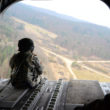Exit Iraqi Prime Minister Nouri al-Maliki.
Not a day too soon and five years too late.
The enormity of the tragedy he helped create is almost too great to grasp. Civilians murdered with weapons the U.S. had provided an Iraqi army that proved incapable of confronting a small but disciplined band of terrorists. Rape and enslavement of women. Innocent men, women, children, dying on a barren mountain.
All because of one fatal foreign-policy decision made by George W. Bush, Dick Cheney, Don Rumsfeld, et al., supported by an acquiescent and at times slavishly supportive media. And Maliki making the worst of the disaster into which Bush and Cheney delivered him.
Three trillion dollars, a nation destroyed, 300,000 Iraqis dead, to create a strategic alliance of Iraq, Iran and Russia.
Not only is Iraq a human rights tragedy for which the United States bears responsibility, it is a geopolitical disaster with which we will be living for 50 years.
Peter Galbraith was ahead of the learning curve on Maliki at a Senate Foreign Relations Committee hearing I covered in 2007:
The Maliki government is a sectarian Shiite government that is regarded as alien, and indeed, even non-Iraqi by the Sunni Arabs, and as irrelevant by the Kurds. Its conduct–the protection of Shiite militias, its secretive provision of government services, the manner in which it carried out Saddam’s execution–present no evidence that it can transform itself into something different that what it is.
Gabraith, who had served as an adviser to the government of Iraqi Kurdistan, is quoted at length in the current issue of the Spectator.
While prescient, Galbraith seems to have been almost too kind in his characterization of Maliki. Consider this from The New York Times last week:
Given the number of enemies he has accrued over his time in power, and the well-documented instances of human rights abuses, torture and extrajudicial killings under his watch–not to mention wide-scale corruption at the highest levels of his government–many believe that Mr. Maliki would be immediately under threat of arrest, or assassination, were he to leave office without guarantees of immunity and protection.
This is a Times reporter describing the predicament confronting an Iraqi leader whose elevation to power was a direct consequence of U.S. foreign policy and who, until things fell apart, had at least the conditional support of the Obama administration.
Four paragraphs from another story that ran in the Times last week tell you almost all you need to know about the strategic geopolitical failure the war in Iraq was (or is).
Another Shiite leader, Sami al-Askari, who is close to Prime Minister Nuri Kamal al-Maliki, said Mr. Obama’s call for airstrikes had come “too late.’ “They should have made this decision when hundreds of Shiites and Sunnis were being killed every day,”’ Mr. Askari said.
Mr. Askari accused the Obama administration of being interested only in “protecting the Kurdish regional government and Christians, not the rest of Iraq.”
“Iraqis must rely on themselves and their genuine friends, like Iran and Russia, who have supported Iraq in its battle against ISIS,” he said. Russia has sent Sukhoi aircraft to the Iraqi forces, and Iran has trained and financed militia forces and sent advisers.
Three trillion dollars, a nation destroyed, 300,000 Iraqis dead, to create a strategic alliance of Iraq, Iran and Russia.
What were they thinking?
Well, not much.
In the current issue of the Spectator, Col. Lawrence Wilkerson explains how the Great Game was played until Bush and Cheney decided to undo the delicate balance of power that had cost tens of thousands of lives since the administration of the first President Bush.
Wilkerson was Colin Powell’s aide-de-camp in the Army and at the State Department, which afforded him an inside-the-room view of the Bush administration’s foreign policy. In an interview in his George Washington University office in 2005, while I was researching a book, Wilkerson pointed me to an incident that illustrates the absence of strategic (or even tactical) thinking that anticipated the descent into chaos in Iraq.
In May 2003, the Iranian government approached the U.S. with an urgent request to open up negotiations between Tehran and Washington. There had been only one other official communication between Iran and the United States since Iranian radicals seized the U.S. embassy in Tehran during the Carter administration.
Then in 2003, Iranian leaders sent a letter through the Swiss embassy offering concessions on Iran’s nuclear problem, its Israel policy and the exchange of Al-Qaeda prisoners they held for Mujahedeen-e-Khalq prisoners in U.S. custody.
This occurred before Mahmoud Ahmadinejad was president and the more moderate leadership in Tehran saw how quickly the U.S. military had moved through Afghanistan and Iraq. They feared they might be next and wanted to talk.
Iran’s diplomatic initiative was quashed by Dick Cheney. Shut out of negotiations and aware that America’s endeavor in Iraq was going south, the Iranians went on to fund, arm and coordinate an insurgency that targeted, with devastating consequences, U.S. soldiers in Iraq. And to ramp up its own nuclear program.
Today, Tehran has more influence in Baghdad than does Washington, and Iraq is an endless and unfolding tragedy.
A recent post by Juan Cole raises a question that should be considered by American liberals who logically want an end to U.S. involvement in Iraq. Cole doesn’t ask it outright. But consider.
What does a military and economic superpower owe to a far lesser country it destroyed in an unprovoked act of military aggression?







0 Comments